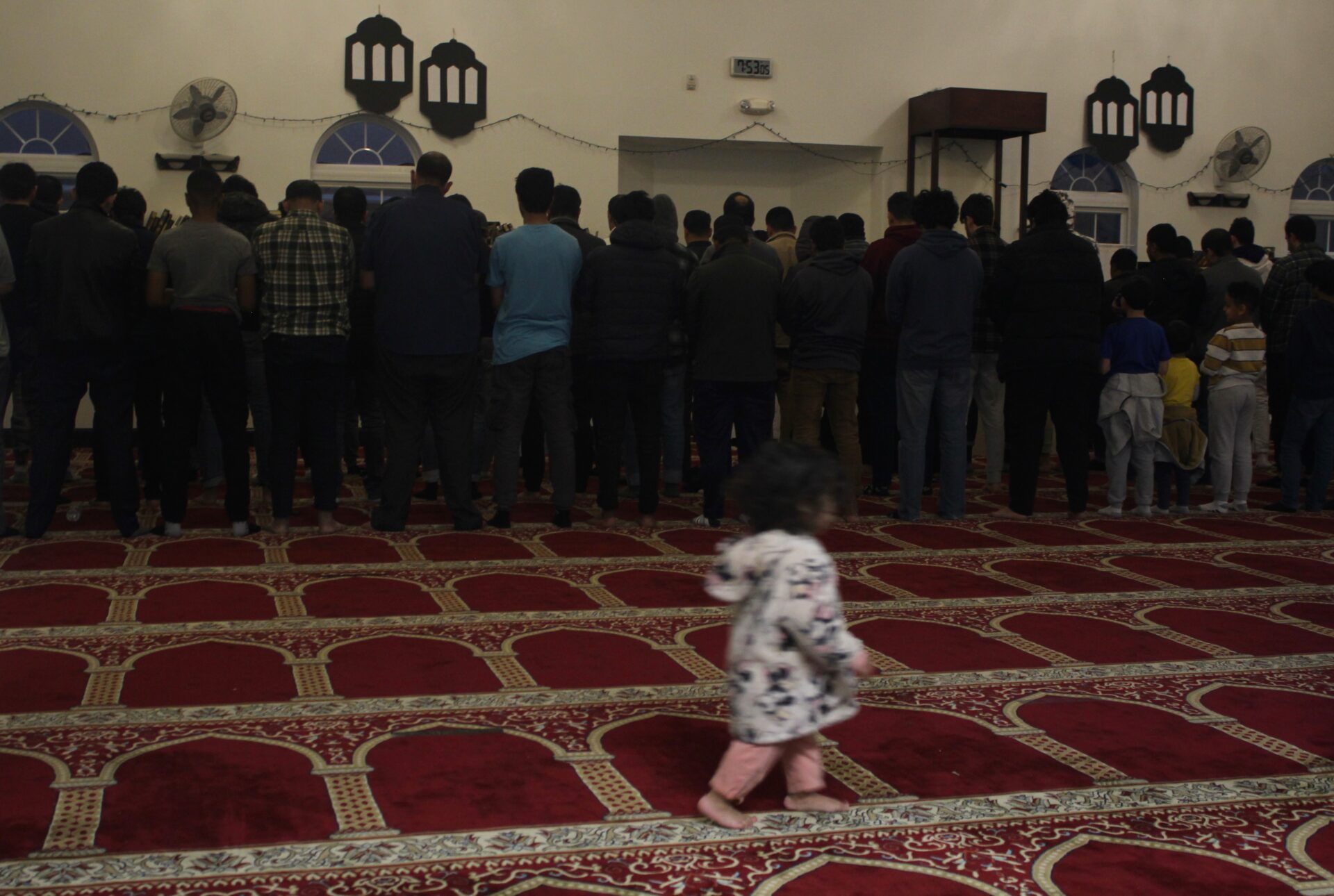The school year is once again in full swing, and before most classes started across the state last week there were plenty of things for students to prepare and fret over. One group of students in Morgantown had a unique concern at the start of this year: a place in school to pray together.
Sajida Elsarrat is a senior at Morgantown High School (MHS) and a leader of the school’s Muslim Student Association. She said sometimes it can be hard to be a religious student attending a secular school.
“There’s a bunch of rules and stuff in Islam, and you can be influenced a lot by people, especially in a place where, like, they’re not, they’re not used to your religion,” Elsarrat said.
One of those rules is regular prayer. Prayer is one of the five pillars of Islam, which include fasting and a pilgrimage to the holy city of Mecca. Muslims pray five times a day, but the midday prayer on Fridays, called Jummah, is meant to be prayed communally.
“Since I started the MSA club, I’ve gotten a lot of complaints saying, like, ‘We have school, and we can’t go to the masjid and then come back and continue school.’ So if it’s possible to, like, have it at the school,” Elsarrat said.
Elsarrat said three years ago, MHS accommodated Muslim students with a space to pray. But in 2023, when she renewed the request, it was denied with little explanation.
Nicole Fauster-Bradford is the advocacy director at the Council on American Islamic Relations (CAIR). She and her organization were asked by students and community leaders to intervene after a year of limited response from the school and county.
Fauster-Bradford said students provided names of teachers who were willing to let them use their classrooms, as well as other spaces in the school.
“The students really just want to make sure that what they are doing is appropriate,” she said. “This is 20 minutes max on a Friday, that’s during a lunch period where there’s dozens of empty classrooms.”
Vajid Pathan, imam and director of religious affairs at the Islamic Center of Morgantown, reached out to CAIR for their help because of the importance of Jummah prayer.
“Friday prayer is something very specific to the daily prayer regiment of the Muslims life, and it is one component that is a required congregational prayer,” he said. “Islam is a communal religion where Muslims are brought together to pray, to interact with one another and to behave as a community. So the Jummah prayer has a very significant impact.”
Pathan said in recent weeks, he was able to sit down with Monongalia County Schools’ director of diversity. It immediately became apparent that there had been a miscommunication. He said students had told the school the Jummah required 45 minutes or more, which is the time allotted when performed at the Islamic center.
“I clarified that for him, and I said the Friday Prayer requires two parts: a sermon and a physical prayer,” Pathan said. “These two things make up the Friday prayer, and it won’t take the kids more than 20 minutes to exit their class and return back inside. So he said, ‘Wow, we didn’t know that, the students were saying it would be 45 minutes, we thought that their entire class would be missed just for this.’”
Although not directly involved in the process, Donna Talerico, deputy superintendent for Monongalia County Schools, said just as school started on Aug. 19, Morgantown High School agreed to let the school’s Muslim students use a room for Jummah prayers.
“Morgantown High is probably the most diverse high school in the state of West Virginia,” Talerico said. “When Morgantown High has any kind of sensitive or diverse issues, they have always stepped up to accommodate our students, our families and our community in every way possible.”
Talerico said the district is accommodating, but education must remain their priority, and a concern for significant loss of instructional time was the main delay.
“Anything that interrupts the educational process then becomes something that we have to give extreme consideration to and how it would affect the fact that our teachers have important jobs to do. They have a curriculum they have to deliver, and our students are expected to participate.”
Pathan said that as a rule, Islam places great emphasis on education and urges its followers to continue educating themselves beyond school, something that is not mutually exclusive to religious practices such as prayer. He said many of the families in the local Muslim community immigrated from majority Muslim countries, and coming to the U.S. can often be a difficult cultural transition. Pathan sees the prayer space as a sign of inclusivity, a validation of their presence in Morgantown.
“We are so grateful to MHS and the school district overall for helping us in this,” Pathan said. “Giving the kids a place to pray was not just giving them a room, it was helping to establish their identity as Muslim students, and that was something that benefited the kids, their parents, and our whole community, and for that, we are extremely grateful.”
Elsarrat agrees with her imam.
“Making like a Jummah prayer and expanding our community, it really like makes us feel heard, and helps us with our Islamic beliefs and become a better community altogether,” she said.
Elsarrat said she has heard from older students about the struggle of not having space to pray in schools. And with her eyes on college and a career in pharmacy, this is one less thing Elsarrat has to worry about for her senior year.
